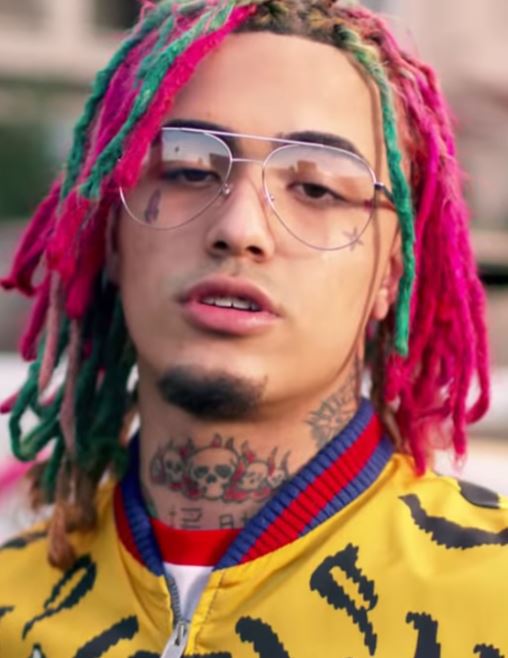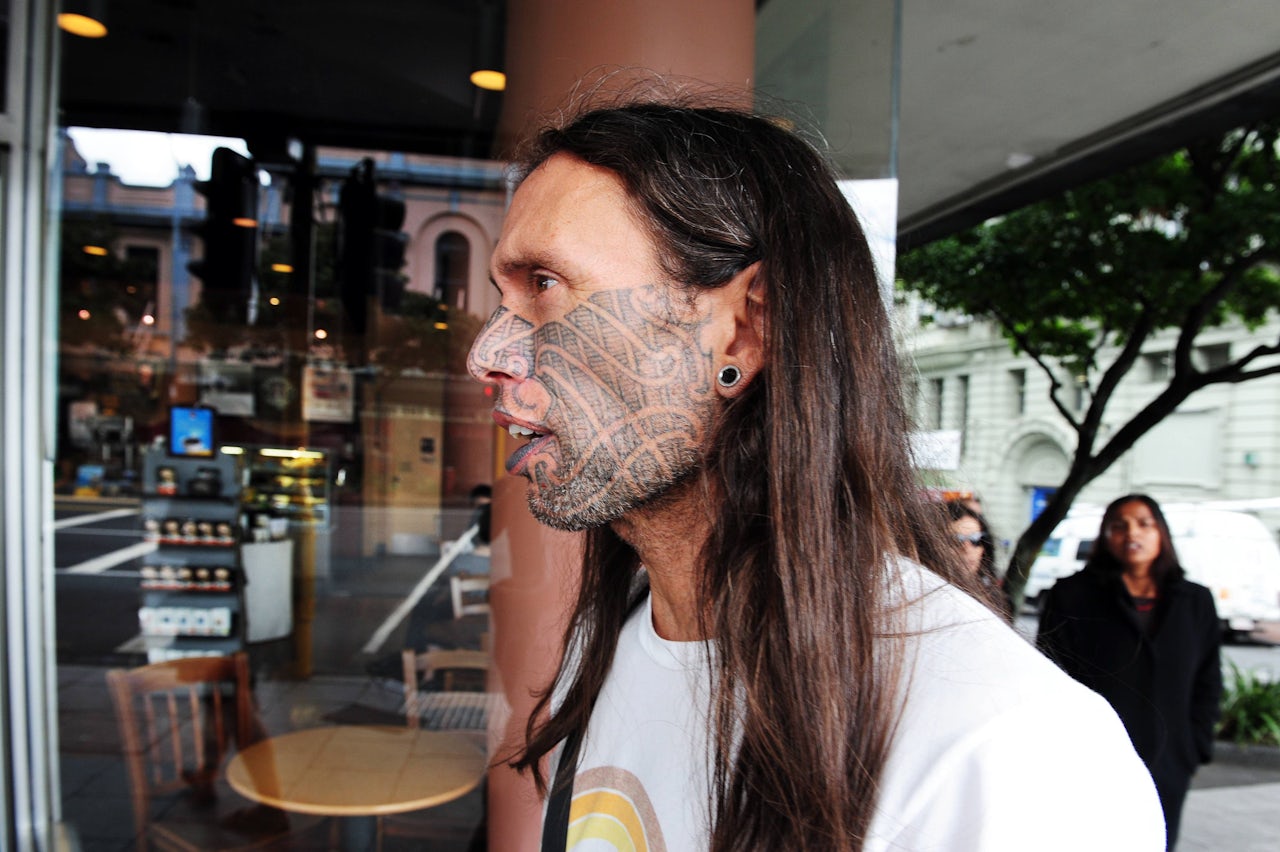Yo, listen up! If you're into the world of rap and hip-hop, you've probably noticed a shift in recent years. The scene ain't just about Black artists anymore. White rappers have been making waves, and some of them are bringing a whole new level of edginess to the table with their bold looks. Enter the "white rapper with tattoos on face." These artists aren't just about the music; they're about the vibe, the art, and the rebellion. Let's dive deep into this phenomenon and explore what it means for the music industry.
Face tattoos have always been a statement of individuality and rebellion. In the rap world, where authenticity is everything, having tattoos on your face can either make or break your image. But for some white rappers, it's more than just aesthetics—it's about breaking stereotypes and carving out their own space in a genre dominated by Black culture. So, why are we talking about this? Because it's a conversation that needs to happen.
This article isn't just about the rappers themselves; it's about the cultural impact they're having. We'll explore the history, the controversies, and the rise of these artists. By the end of this, you'll have a clearer understanding of why this trend is here to stay and how it's reshaping the rap game. So, let's get started, shall we?
Read also:Nicki Minaj Nude Photos The Controversy Truth And Impact On Her Career
Table of Contents
- Biography: Who Are These Artists?
- A Brief History of Tattoos in Rap
- Trends in the Rap Scene
- Controversy Surrounding White Rappers
- Is It Authentic or Appropriation?
- Cultural Impact and Influence
- What Fans Are Saying
- The Future of White Rappers
- Their Music and Style
- Final Thoughts
Biography: Who Are These Artists?
Before we dive into the nitty-gritty, let's talk about the artists themselves. Who are these white rappers with tattoos on their faces, and what makes them stand out? Here's a quick rundown:
Key Artists and Their Stories
Some of the most prominent names in this category include artists like Machine Gun Kelly, Logic, and Tyler, The Creator. These guys aren't just rappers; they're cultural icons who have used their appearance to make bold statements. Let's break it down:
- Machine Gun Kelly: Known for his punk rock vibe and aggressive lyrical style, MGK has tattoos all over his face, symbolizing his rebellious nature.
- Logic: With his unique look and diverse background, Logic has carved out a niche for himself in the rap world. His tattoos reflect his personal journey and struggles.
- Tyler, The Creator: Tyler's artistry goes beyond music. His tattoos are a reflection of his creativity and individuality.
| Artist | Birth Name | Date of Birth | Place of Birth |
|---|---|---|---|
| Machine Gun Kelly | Colson Baker | April 22, 1990 | Hillsboro, Ohio |
| Logic | Sir Robert Bryson Hall II | January 28, 1990 | Rockville, Maryland |
| Tyler, The Creator | Tyler Gregory Okonma | March 6, 1991 | Lakewood, California |
A Brief History of Tattoos in Rap
Tattoos have been a part of the rap culture for decades. They represent everything from gang affiliations to personal stories. For white rappers, getting tattoos on their faces is a way to show that they're not just riding the wave; they're committed to the lifestyle. But how did it all start?
From Gangs to Art
In the early days of rap, tattoos were often associated with gangs and street life. As the genre evolved, so did the meaning behind the tattoos. Today, they're more about self-expression and art. White rappers with tattoos on their faces are continuing this evolution, pushing boundaries and challenging norms.
Trends in the Rap Scene
The rap scene is constantly evolving, and one of the biggest trends right now is the rise of white rappers with tattoos on their faces. This trend isn't just about the music; it's about the image and the message these artists are sending to their fans. But why now? What's driving this trend?
- Authenticity: Fans want to see artists who are true to themselves. Tattoos on the face are a way for these rappers to show that they're not afraid to be who they are.
- Rebellion: The rap world has always been about rebellion. By getting tattoos on their faces, these artists are challenging the status quo and showing that they're not afraid to break the rules.
- Artistry: For some, tattoos are a form of art. They're a way to express themselves and tell their stories through visual means.
Controversy Surrounding White Rappers
Of course, with any trend, there's bound to be controversy. The rise of white rappers with tattoos on their faces has sparked debates about cultural appropriation, authenticity, and the future of the rap genre. Here's a look at some of the key issues:
Read also:How Tall Is Aryan Simhadri Unveiling The Height And More About This Rising Star
Appropriation or Appreciation?
One of the biggest questions surrounding white rappers is whether they're appropriating Black culture or genuinely appreciating it. Critics argue that by adopting certain styles and aesthetics, these artists are exploiting a culture that isn't theirs. On the other hand, supporters say that music is a universal language and that anyone can contribute to it.
Is It Authentic or Appropriation?
Authenticity is a big deal in the rap world. Fans want to know that the artists they're supporting are genuine and true to their roots. For white rappers with tattoos on their faces, this can be a tough line to walk. How do they prove that they're not just copying a trend?
It's all about intention. If an artist is using their platform to uplift the culture and give credit where it's due, then they're on the right track. But if they're just trying to capitalize on a trend without understanding its roots, that's where the problem lies.
Cultural Impact and Influence
The impact of white rappers with tattoos on their faces can't be ignored. They're influencing a new generation of artists and fans, and they're changing the way people think about rap music. But what does this mean for the future of the genre?
Breaking Barriers
By embracing their individuality and pushing boundaries, these artists are breaking down barriers and creating space for others to do the same. They're showing that rap isn't just about race or ethnicity; it's about passion and creativity.
What Fans Are Saying
Fans have strong opinions about white rappers with tattoos on their faces. Some love the boldness and individuality, while others feel that it's a form of cultural appropriation. Here's a look at what some fans are saying:
- "I think it's awesome that these artists are owning their look. It's all about being true to yourself."
- "I get why people are upset, but at the end of the day, music is for everyone. If they're respecting the culture, then good for them."
- "It feels like they're trying too hard to fit in. Why not just be yourself?"
The Future of White Rappers
So, what does the future hold for white rappers with tattoos on their faces? Will the trend continue, or will it fade away like so many others? Only time will tell, but one thing is for sure: these artists are here to stay. They're changing the game, and they're not afraid to do things their way.
Their Music and Style
Let's talk about the music. These artists aren't just about their looks; they're about the beats, the lyrics, and the overall vibe. Here's a quick look at their music and style:
- Machine Gun Kelly: Known for his aggressive lyrical style and punk rock influences.
- Logic: Combines rap with spoken word and social commentary.
- Tyler, The Creator: Blends rap with alternative genres like rock and jazz.
Final Thoughts
In conclusion, the rise of white rappers with tattoos on their faces is more than just a trend; it's a cultural movement. These artists are challenging stereotypes, breaking down barriers, and reshaping the rap genre. Whether you love them or hate them, you can't deny their impact. So, what's next? Only time will tell, but one thing's for sure: the rap game will never be the same.
If you enjoyed this article, feel free to leave a comment or share it with your friends. And if you're looking for more content like this, be sure to check out our other articles. Until next time, keep it real!


